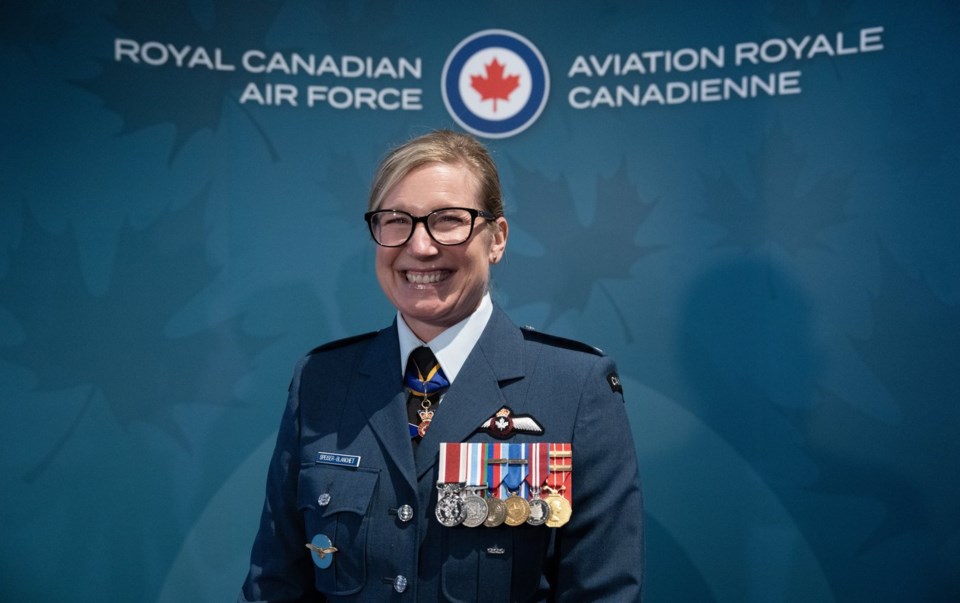OTTAWA — Lt.-Gen. Jamie Speiser-Blanchet made history Thursday by becoming the first woman to lead the Royal Canadian Air Force.
She took the reins from Lt.-Gen. Eric Kenny at a change-of-command ceremony at the Canada Aviation and Space Museum presided over by Chief of the Defence Staff Gen. Jennie Carignan.
"I feel exhilarated," Speiser-Blanchet told reporters after the ceremony. "I feel optimistic and also grounded in reality. I see big challenges, but I'm extremely honoured to have this opportunity and I feel a really strong sense of pride being here today."
Speiser-Blanchet assumes command at a key time for the air force, as it struggles with personnel shortages and looks to take on new capabilities.
"We are working a lot on known personnel shortages, so recruiting is increasing. We're working diligently with all of our partners within the Department of Defence and even externally on retention measures," she said.
The RCAF is poised to soon take on its next generation of fighter jet: the American-made F-35 stealth fighter.
That procurement project is currently under review by the federal government due to the ongoing trade war with the United States. The deal with Lockheed Martin and the U.S. government is for 88 planes at a cost of about US$85 million each.
Canada has already purchased the first 16 F-35s, which are due to be delivered early next year. Ottawa is expected to arrive at a decision on the remaining warplanes very early in Speiser-Blanchet's mandate — by end of summer.
But with the first F-35s expected to enter service within the next few years, pilots will need to quickly begin training.
The air force also faces what Speiser-Blanchet described as an "excellent challenge" to have: the federal government has committed to a large increase in defence spending.
"We do need to do so very judiciously and to make sure that there's the right value for money," she said. "With the personnel shortage and the extra demand, we have a very unstable world at the moment and meeting a lot of those operational demands while we're trying to institutionalize some of the acquisitions and changes, I think, is really where that challenge space is."
Kenny, who had been commander since 2022, is retiring after three-and-a-half decades of service in the air force.
He said he is leaving with mixed emotions, at a "point in history where our adversaries are aggressively challenging the rules-based international order and have attacked the beliefs, friendships and freedoms we have enjoyed for decades."
Kenny praised the incoming commander for her vast network of connections across government departments and industry, and for pushing the department to "challenge the status quo" and build an "agile, integrated and inclusive" air force.
He also said he is "somewhat envious that she will be in command as all our new capabilities are delivered in the coming few years."
Speiser-Blanchet has served in the past as a Griffon helicopter pilot and in various command roles, most recently as deputy commander of the air force.
Her operational deployments included UN and NATO peacekeeping tours in Haiti and Bosnia, along with domestic deployments in response to emergencies such as forest fires and floods.
Speiser-Blanchet comes from Chicoutimi, Que., and is now the 22nd commander of the RCAF, which employs some 15,000 military and civilian personnel and manages more than 250 aircraft.
This report by The Canadian Press was first published July 10, 2025.
Kyle Duggan, The Canadian Press



